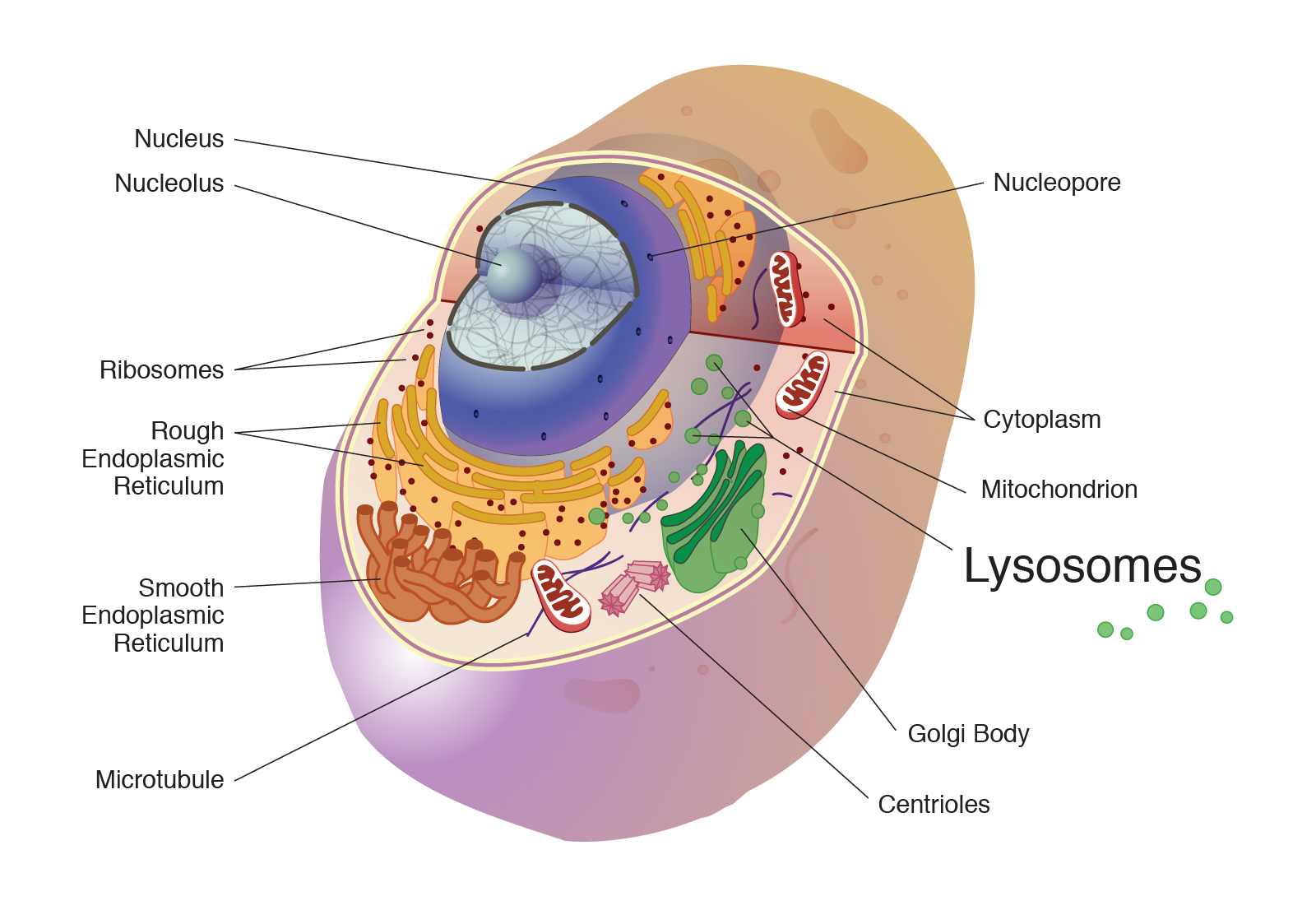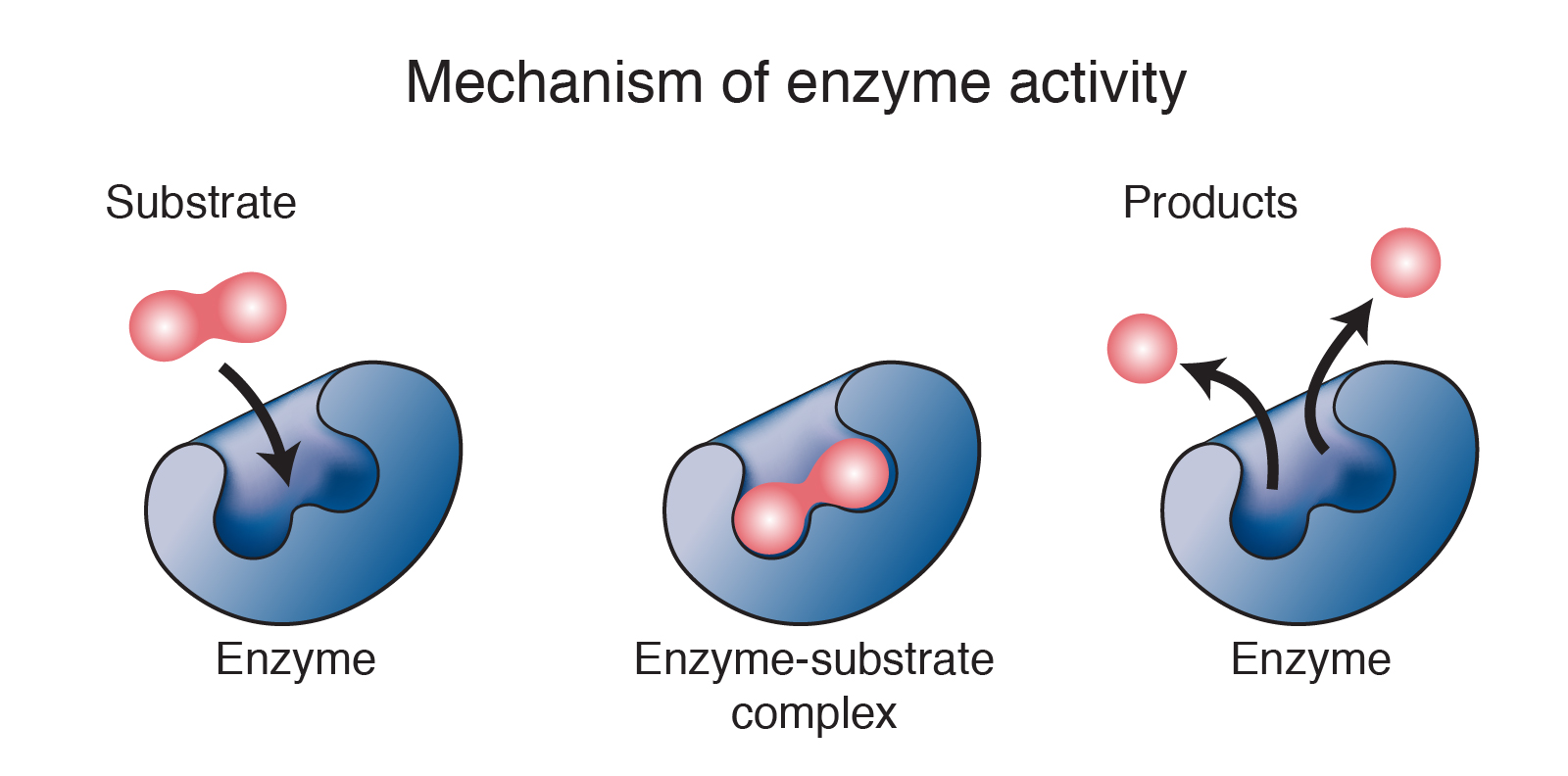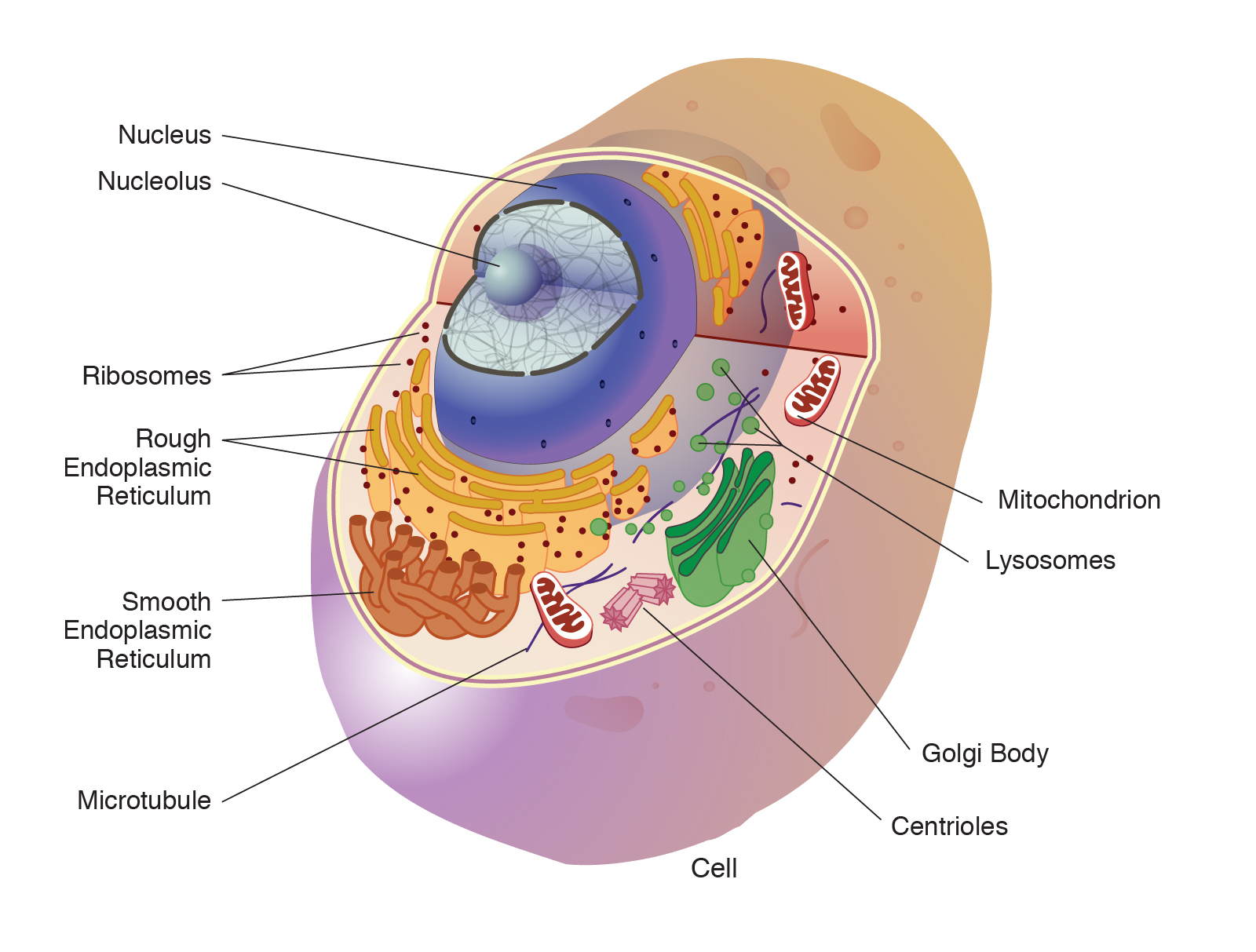Lysosome
Definition
A lysosome is a membrane-bound cell organelle that contains digestive enzymes. Lysosomes are involved with various cell processes. They break down excess or worn-out cell parts. They may be used to destroy invading viruses and bacteria. If the cell is damaged beyond repair, lysosomes can help it to self-destruct in a process called programmed cell death, or apoptosis.

Narration
Now, the lysosome is a specific type of organelle that's very acidic. So that means that it has to be protected from the rest of the inside of the cell. It's a compartment, then, that has a membrane around it that stores the digestive enzymes that require this acid, low-pH environment. Those enzymes are called hydrolytic enzymes, and they break down large molecules into small molecules. For example, large proteins into amino acids, or large carbohydrates into simple sugars, or large lipids into single fatty acids. And when they do that, they provide for the rest of the cell the nutrients that it needs to... So, for example, if you can't do that, it can't break down large molecules into small molecules. You'll have storage of those large molecules, and this is a disease. There's also another type of lysosome storage disease in which the small molecules that are produced from those large molecules can't get out of the lysosome. They're stored there because the transporters for moving these small molecules out are missing genetically. And finally, one other function of the lysosome is to ingest bacteria so that the bacteria can be destroyed. So the lysosomes also provide a function against infection, and the cell will often engorge a bacterium and put it into its lysosome for destruction. So here's an important organelle that has function against infection and function in a way in nutrition to break down large molecules into small molecules so that they can be reutilized.



